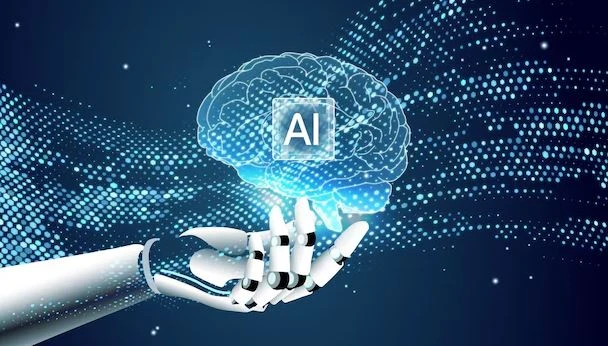Table of Content
Learn Why Writers Around the World Are Concerned With the Rise of AI
For content writers and agencies, the rapid rise of AI tools has sparked both excitement and concern. On one hand, these advanced technologies offer powerful capabilities that can assist with brainstorming, drafting, and editing content more efficiently than ever before. They have the potential to streamline workflows, reduce costs, and help writers produce high-quality work at a faster pace. However, along with these benefits comes a growing uncertainty about the long-term impact of AI on the industry.
The biggest question looming over content creators is will AI replace writers altogether. While AI-generated content is improving in quality, it still lacks the depth, creativity, and emotional intelligence. However, as AI tools continue to evolve, many fear that businesses may prioritize cost-cutting over quality, leading to a decline in demand for human-written content. This concern is particularly pressing for agencies whose business models rely on providing unique, well-researched, and engaging content.
As the industry navigates this shift, writers and agencies are faced with the challenge of adapting to new technology while preserving the value of human creativity. Instead of viewing AI as a direct competitor, many professionals are exploring ways to integrate it in their article writing services as a supportive tool rather than a replacement. However, some are concerned, stating that such advancement at one stage can eat up their jobs. If you’ve got the same concern about AI, read this blog in detail to get all your answers.
What’s All About the Recent AI Rise?

The recent surge in artificial intelligence AI is transforming the tech world at an unprecedented pace. From automation and data analysis to creative content generation, AI is revolutionizing how businesses and individuals interact with technology. Major advancements in machine learning has enabled AI to perform complex tasks that were once thought to be exclusive to human intelligence. Companies across various industries are investing heavily in AI to enhance efficiency, and develop innovative solutions, making it one of the most disruptive forces in modern technology.
One of the most significant impacts of AI is its role in reshaping job markets and workflows. While AI-driven automation is streamlining repetitive tasks, it is also raising concerns about job displacement in certain industries. At the same time, new opportunities are emerging as demand is growing for AI specialists. Tech giants like DeepSeek, Microsoft, and OpenAI are leading the charge, competing to push AI boundaries while addressing ethical concerns. As AI becomes more embedded in everyday life, striking a balance between innovation and responsible development is a top priority.
Beyond business and employment, AI is also making waves in creative and scientific fields. AI-powered tools are effortlessly generating art, music, and written content. In science and medicine, AI is accelerating research, enabling breakthroughs in drug discovery, and personalized healthcare. While some fear the potential risks of unchecked AI growth, its transformative power is undeniable. As the technology continues to evolve, the key challenge will be ensuring that AI serves humanity in a way that enhances progress while minimizing unintended consequences.
Keep your blog fresh and engaging with our professional writers!
Engage Readers
Impact of AI on Content Creation
AI has significantly revolutionized content writing by streamlining the development and improving efficiency. With advanced NLP models, AI-powered tools can assist writers in generating ideas, drafting articles, and even refining grammar and style. These tools help writers overcome creative blocks, produce content more quickly, and ensure consistency in tone and structure. For businesses, AI-driven writing solutions enable the production of large volumes of high-quality content in less time, making it easier to keep up with the demand for digital content.
Beyond efficiency, AI has also expanded the creative possibilities in content writing. AI-powered platforms can analyze vast amounts of data to generate insightful reports, suggest relevant topics based on trends, and even tailor content plan to specific audiences. Personalization has become more precise, allowing businesses to engage readers with customized content that resonates with their interests. Additionally, AI-driven translation tools have broken language barriers, making it easier for writers and businesses to reach global audiences.
Despite these advancements, AI has not replaced human writers but rather enhanced their capabilities. While AI-generated content is useful for basic writing tasks, it still lacks the emotional depth, nuance, and originality that human writers bring to the table. The role of writers has evolved from merely producing content to curating, refining, and ensuring authenticity in AI-assisted writing. Instead of viewing AI as a threat, many content creators are embracing it as a powerful tool that enhances productivity and innovation.
Will AI Replace Writers?

Many people worry that AI will eventually replace human writers, but in reality, this remains more of a theoretical concern than an immediate threat. While AI has made significant strides in generating text, writing is a complex process that goes far beyond simply putting words on a page. Skilled writers do more than just construct sentences. They analyze their briefs in the context of their client’s business goals, consider audience needs, and craft messages that evoke emotion and engagement. Brand copywriting requires creativity and critical thinking, qualities that AI still struggles to replicate at a human level.
While AI-powered language models like DeepSeek, ChatGPT, and other tools, they do not possess true originality or the ability to think independently. These models can generate coherent and contextually relevant content, but they primarily rely on existing data patterns rather than creating truly new ideas. Human writers, on the other hand, bring unique perspectives, and cultural awareness that enable them to craft compelling content. This distinction highlights the ongoing need for human involvement in the writing process, particularly for storytelling and brand messaging.
Rather than fully replacing writers, AI is more likely to serve as a valuable assistant, enhancing productivity and efficiency in content creation. Many writers are already integrating AI tools into their workflow to streamline research, improve grammar, and generate content ideas. However, AI lacks the depth of understanding, intuition, and strategic thinking that human writers contribute. The future of digital copywriting will likely involve a collaboration between AI and human creativity, where AI handles routine tasks while writers focus on delivering meaningful content.
Benefits of AI for Writers
AI offers a lot of benefits to the writers. Those who think that it is a threat for their existence are certainly wrong. There are plenty of benefits they could from the AI technology. Let’s take a quick look at them below.
Idea Generation & Brainstorming: AI helps writers overcome writer’s block by suggesting topics, outlines, and creative angles.
Editing & Proofreading: AI-powered tools improve grammar, spelling, and readability, enhancing overall writing quality.
Content Optimization: AI analyzes readability, SEO, and engagement metrics to tailor content for specific audiences.
Speed & Efficiency: AI automates research, summarization, and drafting, allowing writers to focus on creativity.
Multilingual Assistance: AI translates and adapts content for global audiences, expanding a writer’s reach.
Enhances Productivity: AI speeds up research, drafting, and editing, allowing writers to work more efficiently.
Improves Writing Quality: AI tools assist with grammar, style, and readability, ensuring polished content.
Boosts Creativity: AI provides ideas, suggestions, and alternative phrasings to inspire new perspectives and content strategy.
Frequently Asked Questions
| What is generative AI? Generative AI is a type of artificial intelligence that creates new content, such as text, images, music, or code, based on patterns learned from existing data. It uses models like GPT or GANs to generate realistic and creative outputs. |
| Can AI technology replace writers? AI can assist writers by generating content, editing, and brainstorming ideas, but it lacks true creativity, emotions, and human intuition. While it may replace some repetitive writing tasks, human writers remain essential for originality, depth, and to-the-point storytelling. |
| What are the benefits of AI for writers? AI helps writers by enhancing creativity, speeding up research, generating ideas, and improving grammar and style. It also automates repetitive tasks, allowing writers to focus on higher-level storytelling and critical thinking. |
Final Words
That takes us to the end of this blog in which we have discussed whether AI will replace writers or not. It is a question that has made many people concerned. The recent rise of AI has made them a bit skeptical, which is why they are fearing for the survival of their jobs.
However, things are not that bleak as it looks, because AI still needs a quality check from the humans. Due to this, the relevance of humans in the writing field will not vanish any time soon. The power of creativity and emotional touch cannot be replaced by anything, let alone AI or any other technology that comes in the future.

Unleash your brand story`s potential with eContentSol – your creative writing companion. We craft narratives that captivate. Ready to elevate your content game? Dive into creativity with us and let`s bring your ideas to life.


